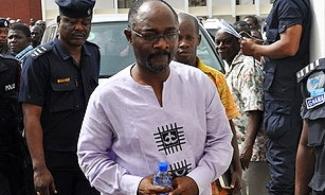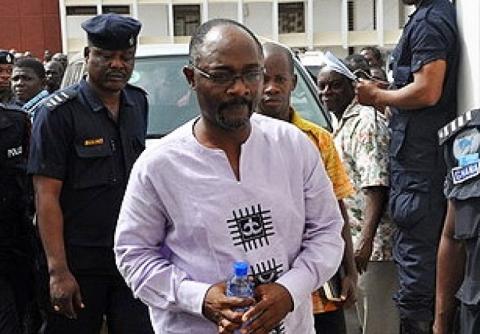
Mr. Woyome, alleged to be a financier of the ruling National Democratic Congress (NDC), was facing two counts of causing financial loss to the state and defrauding by false pretence. He was said to have illegally received 51 million cedis (about $14.5million) in 2010 in connection with the construction of football stadiums for the African Cup of Nations held in Ghana in 2008.

A High Court in the Ghanaian capital Accra has released businessman Alfred Agbesie Woyome, the man behind the long standing ‘judgment debt’ saga, which blew up in the country several years ago.
Mr. Woyome, alleged to be a financier of the ruling National Democratic Congress (NDC), was facing two counts of causing financial loss to the state and defrauding by false pretence. He was said to have illegally received 51 million cedis (about $14.5million) in 2010 in connection with the construction of football stadiums for the African Cup of Nations held in Ghana in 2008.
Presiding over the case, Justice Ajet-Nasam argued that the prosecution failed to prove its case against the accused person.
Justice Ajet-Nasam said he did not understand why key actors in the case, like former Attorney General Betty Mould Iddrisu, under whose watch the colossal amount was ordered to be paid to Mr. Woyome, and her deputy, Ebo Barton Oduro were not invited to testify.
He said under the circumstances, he had no option than to let the accused person walk.
The courtroom erupted as Justice Ajet-Nasam pronounced his ruling. The commotion then carried on outside where more sympathizers of Mr. Woyome were waiting, at the centre of perhaps Ghana’s most infamous fraud case.
Alfred Woyome won a lawsuit against the government and was paid ¢51 million ($14.5 million) for being unfairly denied contracts to construct stadiums for purposes of hosting the CAN 2008 Nations Cup.
However an Auditor General's report, released in 2010, said the amount was paid illegally to him.
The report triggered nationwide controversy with critics accusing government of colluding with the businessman to steal money from the public coffers.
Justice Ajet-Nasam described the prosecution's case as "shoddy.